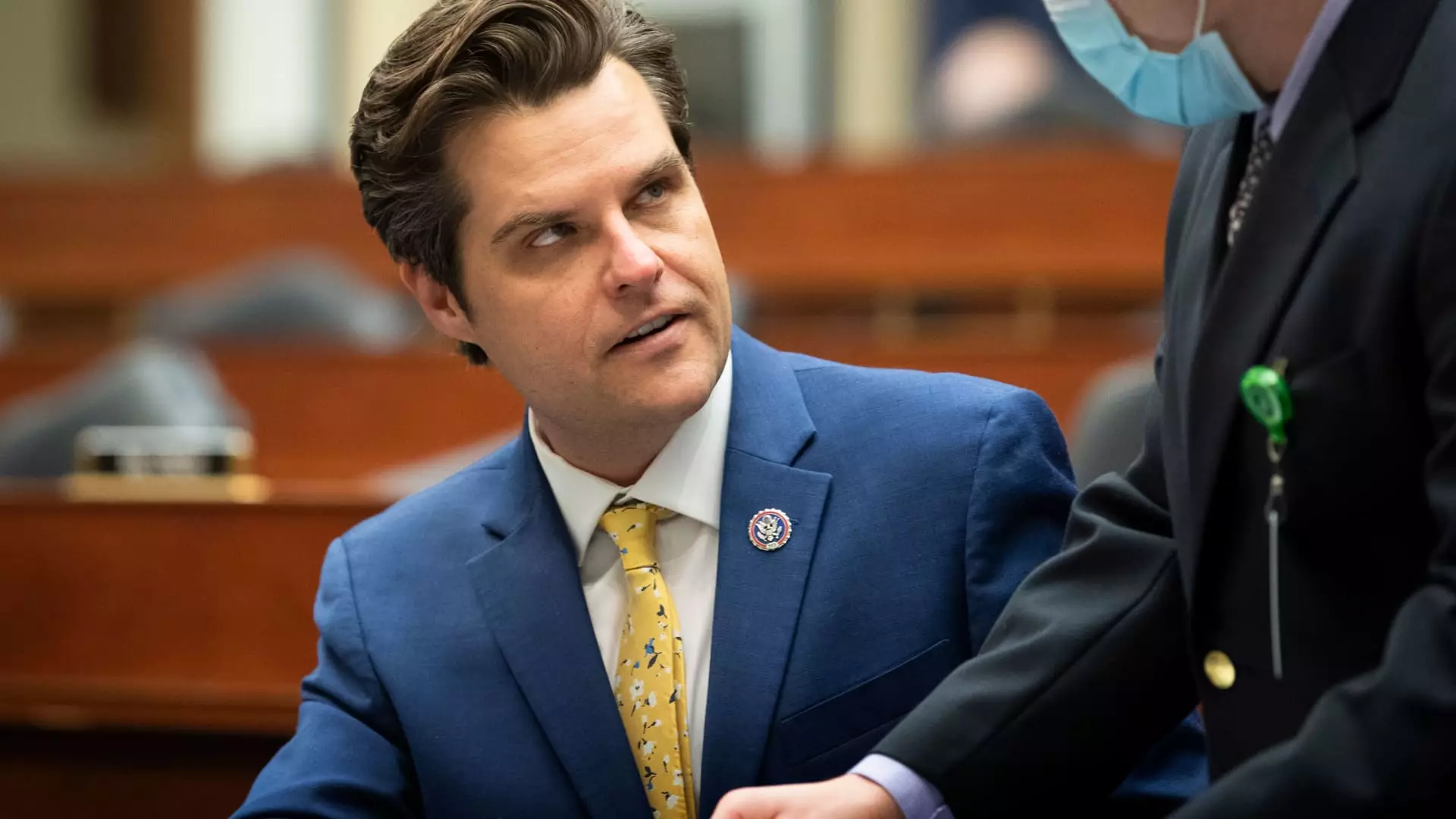The recent move by the House Ethics Committee to vote on releasing their investigative findings regarding Matt Gaetz is a significant development in a controversy that has enveloped the former Republican representative for quite some time. This situation combines complex issues of ethics, politics, and personal integrity, raising critical questions about accountability, transparency, and the boundaries of congressional conduct.
Matt Gaetz has been a controversial figure since allegations surfaced regarding his involvement in sexual misconduct and illicit drug use. Originally, the Ethics Committee had stalled on releasing details from their investigation, particularly as Gaetz resigned from Congress, following a tumultuous period that included being considered for a position in President Donald Trump’s administration. The subsequent reopening of the ethics investigation in May 2023 indicated that the committee would delve deeper into serious claims concerning Gaetz’s behavior, which included allegations of accepting improper gifts and attempting to obstruct legal inquiries into his conduct.
The notion that Gaetz was under scrutiny from both the Department of Justice and the House Ethics Committee illustrates the gravity of the allegations. The DOJ concluded its inquiry without pursuing charges, a fact that Gaetz has frequently highlighted in his defense. His insistence on being “fully exonerated” showcases a strategic narrative he has maintained throughout this controversy.
Following the announcement of the Ethics Committee’s decision, Gaetz took to social media to express his disdain. He framed the committee as being biased against him, asserting that their actions represent a broader political agenda rather than a genuine quest for accountability. His defense hinges primarily on the absence of criminal charges against him, which he suggests should nullify the allegations’ credibility.
In making claims about his past, Gaetz attempted to distinguish between youthful indiscretions and criminal behavior, suggesting that aspects of his social life—such as partying and relationships—should be viewed in a separate light from the serious allegations of misconduct. This narrative, however, raises questions about the implications of such actions—and whether they should be classified as merely youthful folly or indicative of deeper ethical failings.
The decision to release a report after Gaetz’s departure from Congress sets a noteworthy precedent. In the political landscape, it poses significant challenges regarding how Congress regulates its own members, especially after they have resigned. House Speaker Mike Johnson has voiced concerns that this could lead to a troubling trend where former members remain under the spotlight, potentially chilling the political engagement of current members.
Moreover, the Ethics Committee’s bipartisan vote to release findings serves as an indicator of an evolving attitude toward accountability within Congress. Historically, such investigations have typically remained within the bounds of the congressional timeline. This shift not only highlights the nuances of congressional ethics but also underscores the importance of transparency in governance.
As the report is set to be released, several questions loom regarding the implications for ethical governance and the public’s trust in their elected officials. For one, how should the Ethics Committee maintain its authority while respecting the boundaries of jurisdiction over former members? Additionally, can the House Ethics Committee navigate these turbulent waters without compromising its integrity and mission?
Ultimately, the ramifications of Gaetz’s case, both for himself and the broader political landscape, will resonate long after the report is made public. As Congress grapples with its ethical standards, the ongoing discourse surrounding accountability and transparency will undoubtedly remain at the forefront of public interest.
In sum, while the release of the House Ethics Committee’s report may offer insights into Gaetz’s conduct, it also invites broader reflection on the standards by which elected officials are held accountable and how these standards are applied in an ever-evolving political context. Whether this is a step toward greater accountability or merely a momentary spectacle remains to be seen, but the stakes are undeniably high.



Leave a Reply